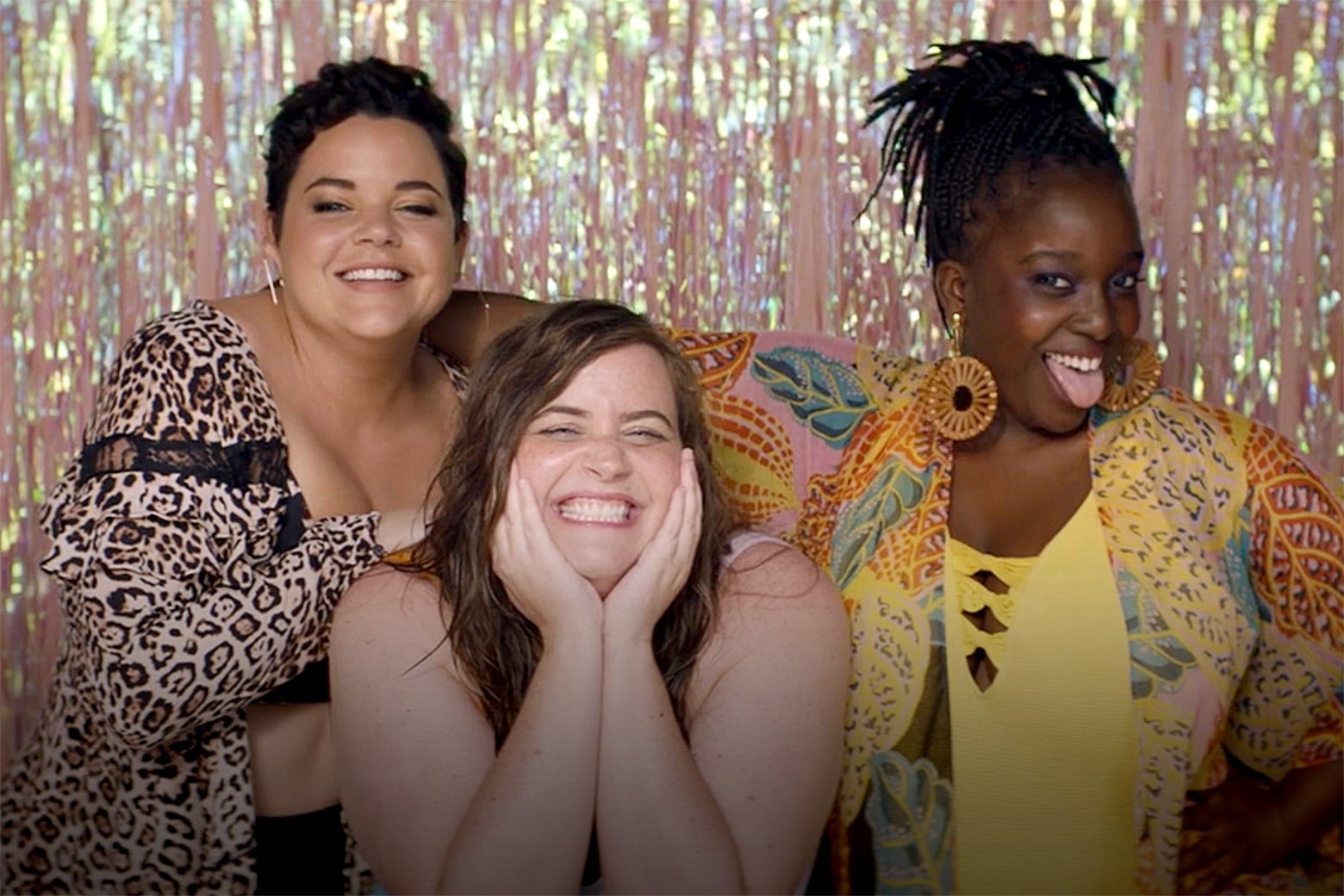In the first chapter of Lindy West’s memoir, Shrill: Notes From a Loud Woman, she writes “as a kid, I never saw anyone remotely like myself on TV. … There simply were no young, funny, capable, strong good fat girls.” Hulu’s loose adaptation of Shrill, a sweet, low-key comedy that stars Aidy Bryant as an alt-weekly writer named Annie Easton, is aimed at redressing this particular lack, but not in the manner of a public service announcement. The show—which was co-created by West, Bryant, and showrunner Ali Rushfield—is explicitly about a fat woman who is starting to figure out how to live without constantly apologizing for or being ashamed of her body, but it’s also a show about an upbeat, fun, and funny millennial, a chick who keeps settling for goofy beardos who won’t commit, and a bold writer at a Portland, Oregon–based alt weekly in the midst of finding her voice and her self-confidence. It’s about fat, but it’s not just about fat.
Shrill is of a piece with at least two contemporary TV genres. One is what Emily Nussbaum described in her review as “smart, minor-key series … a half-jaunty, half-melancholic half hour,” a once slightly esoteric flavor that is now available year-round. The other is recent series that star heavy women: Huge, Dietland, Super Fun Night, This Is Us. It’s not an incredibly long list, but it’s not as short as it once was. In some instances, as with Super Fun Night, the protagonist’s body is barely mentioned by the show; in other instances, like on This Is Us, the character’s weight is so much at the center of the character’s arc it starts to seem like she thinks about nothing else at all.
Shrill has more radical things to say about what it’s like to be fat in America than any of these series. “I’ve wasted so much time and energy and money—for what? For what, you know? I’m fat, I’m fucking fat, hello,” Annie yells, right before writing a coming-out essay about her weight for her workplace, the Weekly Thorn. And the show practices what it preaches: It skips over some of the usual tropes of stories, even sympathetic ones, about overweight people. There are no montages of diets and nutrition classes and weigh-ins, no endless cycle of self-recrimination and public shame. Wherever Annie is at in accepting herself, she—and the show—is over misery, even as a way to amass sympathy or identification.
The show also has a great supporting cast. John Cameron Mitchell plays Annie’s boss, a version of Dan Savage, who was West’s boss at Seattle’s the Stranger and is ruthlessly but lovingly sent up here. He’s awful, but he’s also very funny and very bitchy, and that ends up feeling like a kind of affection, a belief that Savage can take the lampooning. Julia Sweeney and Daniel Stern also appear as Annie’s parents, well-intentioned but flawed, and then there’s Annie’s goofus of a maybe-boyfriend (Luka Jones), who does ’shrooms with her dog because he, basically, is an overgrown puppy himself.
But mostly the show has Bryant, who even when she’s playing self-obsessed—becoming a self-actualized human being may require a wee bit of egomania—is extremely appealing. As a cast member on Saturday Night Live for the past seven years, Bryant has played tons of funny, silly parts, always giving off a kind of ineffable sweetness. She has that quality here too, a cuteness that jangles, in a perhaps accidental but intriguing kind of way, with the character’s blooming toughness, sharpness, and confidence. Annie whiplashes between self-hatred and self-acceptance, meekness and boldness, advocacy and solipsism, but she’s always gregarious and pervy and ready to make conversation. Coming into one’s own is a herky-jerky process.
